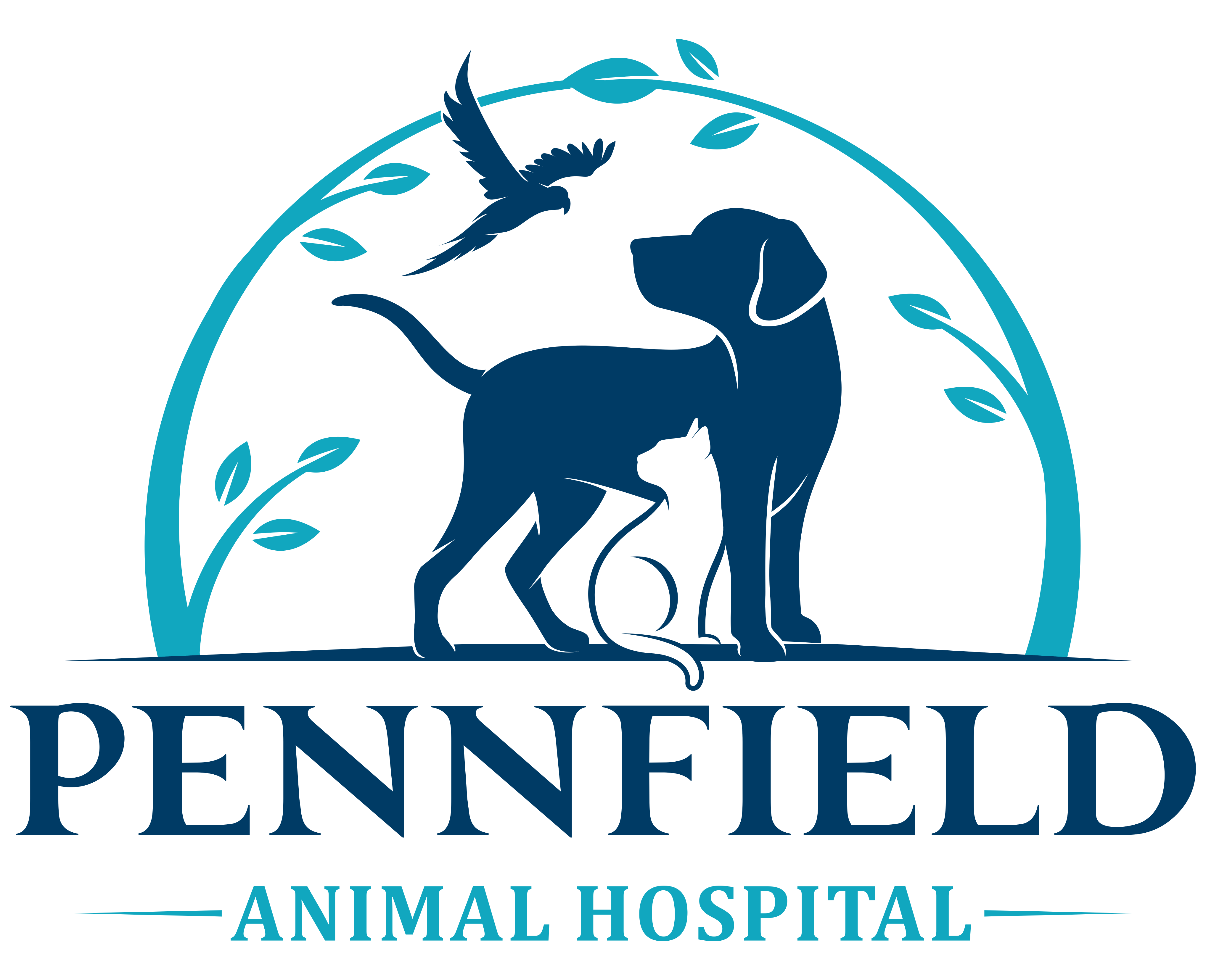
Good Nutrition for Better Health
Some of the more confusing topics for clients are: what is a healthy food to feed my pet, how much of that food should I feed my pet, and what is the value of a premium diet. These are important considerations, not only for your pet’s health, but also for your pocketbook since the greatest cost of pet ownership is usually feeding them! Pet food labels are also confusing; if an old rawhide chew came with a nutritional label, it would show a high level of protein – but it has absolutely no nutritional value if consumed! Some people believe that feeding people food is a way to ensure good quality food, but this can lead to nutritional and dietary deficiencies that can negatively affect the health of your pet. One suggestion is to always choose a name-brand diet that has an AAFCO recommendation on its label. The Association of Animal Feed Control Officials (AAFCO) develops and implements standards for the manufacture, distribution, and sale of animal food. At a minimum, this should be on the label to ensure a basic level of food quality. The food label should also state for what stage of life the food is designed.
Pet Obesity and its Effect on Health
Overfeeding, unrestricted access to food, feeding table scraps and excessive treats, and lack of exercise are all reasons why nearly 35% of pets in the U.S. are overweight. It is not always easy to recognize when a pet is overweight. However, excessive weight in our pet population is a wellness issue and a risk factor for disease. Extra weight can lead to serious health risks such as heart disease, high blood pressure, arthritis, skin problems, and even shortened life expectancy — all of which are preventable.
If your pet is overweight, you can do something about it! Cutting out treats and/or limiting the amount of calories your pet gets daily, also increasing level of activity and exercise, and diet choice are all important factors. Schedule a time for our doctors and staff to assess your pet’s weight and go over how to start a program to get your pet back down to an ideal weight.
Supplements
Generally, if your pet is on an AAFCO approved diet, we do not recommend extra vitamins. Over-supplementation of these can sometimes be dangerous. However, there are other supplements that are beneficial and may be helpful in certain situations. As mentioned earlier, omega fatty acids are important in skincare, allergy treatment, and immune support. Probiotics are useful in the treatment/prevention of diarrhea (especially when a pet is getting antibiotics for other illnesses). Other nutraceutical and holistic supplements exist for palliative care and adjunct treatment of certain organ diseases.
Prescription Diets
There are many prescription diets now available to treat specific diseases such as urinary problems, liver, heart, gastrointestinal and endocrine disease, obesity and other fiber-responsive diseases. As with prescription drugs, we first need to establish and maintain a client-patient-doctor relationship and assess which prescription diet is right for your pet’s condition.
